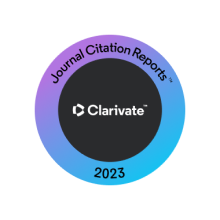Abstract
Objectives: Diagnosing hypertrophic cardiomyopathy (HCM) can be challenging due to its nonspecific clinical manifestations, variability in electrocardiographic (ECG) patterns, and limited access to echocardiography, the gold standard for diagnosis, often leading to delayed detection. Recent artificial intelligence (AI) advancements have enabled ECG-based algorithms to improve HCM detection. This systematic review and meta-analysis aim to assess the overall diagnostic performance of AI-enhanced ECG in identifying HCM.
Methods: This study followed the Preferred Reporting Items for Systematic Reviews and Meta-Analysis (PRISMA) guidelines. Articles were retrieved from PubMed, EBSCO, and Proquest. Inclusion criteria encompassed all studies evaluating AI algorithms for the detection of HCM from 12-lead ECGs. Meta-analysis was performed using R v4.4.1. Bivariate random-effects models were employed to derive pooled estimates of sensitivity, specificity, and the area under the curve (AUC) of the summary receiver operating characteristic (SROC).
Results: A total of five retrospective cohort studies involving 69,343 participants, were included. The pooled sensitivity of AI-enhanced ECG for detecting HCM was 0.84, and the specificity was 0.86. The AI-enhanced ECG demonstrated excellent diagnostic accuracy, with an SROC-AUC of 0.927 in detecting HCM.
Conclusion: AI-enhanced ECG shows promise as a novel screening tool for detecting hypertrophic cardiomyopathy. However, the considerable heterogeneity and the limited number of studies necessitate careful interpretation and highlight the need for additional research in the future.
Recommended Citation
Theja, Fernando (Alonzo); Jusni, Louis (Fabio Jonathan); Soetedjo, Robby; and Theja, Dimetrio (Alonzo)
(2025)
"Artificial Intelligence-Enhanced ECG for Hypertrophic Cardiomyopathy Diagnosis: A Systematic Review and Meta-Analysis,"
Journal of the Saudi Heart Association: Vol. 37
:
Iss.
2
, Article 8.
Available at: https://doi.org/10.37616/2212-5043.1431
Creative Commons License

This work is licensed under a Creative Commons Attribution-Noncommercial-No Derivative Works 4.0 License.




